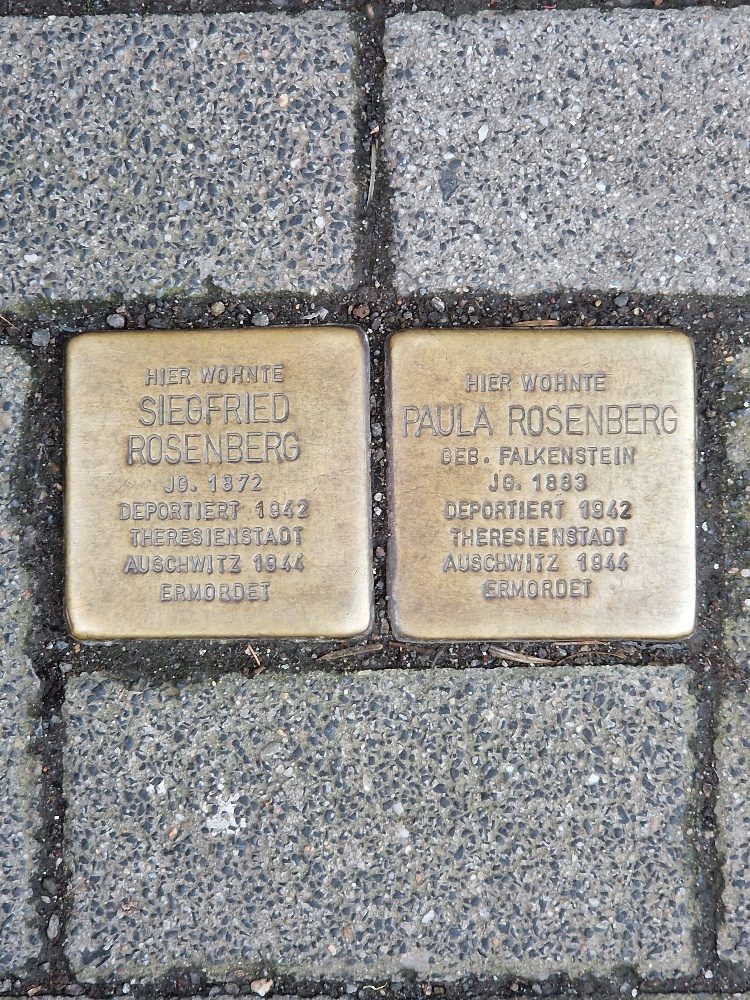Twelve Steps of AA
1. We admitted we were powerless over alcohol – that our lives had become unmanageable.
2. Came to believe that a Power greater than ourselves could restore us to sanity.
3. Made a decision to turn our will and our lives over to the care of God, as we understood Him.
4. Made a searching and fearless moral inventory of ourselves.
5. Admitted to God, to ourselves and to another human being the exact nature of our wrongs.
6. Were entirely ready to have God remove all these defects of character.
7. Humbly asked Him to remove our shortcomings.
8. Made a list of all persons we had harmed, and became willing to make amends to them all.
9. Made direct amends to such people wherever possible, except when to do so would injure them or others.
10. Continued to take personal inventory and when we were wrong promptly admitted it.
11. Sought through prayer and meditation to improve our conscious contact with God, as we understood Him, praying only for knowledge of His will for us and the power to carry that out.
12. Having had a spiritual awakening as the result of these steps, we tried to carry this message to alcoholics and to practice these principles in all our affairs.
`Big Book´ of Alcoholics Anonymous, 1939
`Peace of Mind´, Patrick; that is the Holy Grail of this programme.
Tim Wallace Murphy
The traditional idea of initiation combines an introduction of the candidate into the techniques, duties, and prerogatives of his vocation with a radical readjustment of his emotional relationship to the parental images. The Mystagogue (father or father-substitute) is to entrust the symbols of office only to a son who has been effectually purged of all inappropriate infantile cathexes – for whom the just, impersonal exercise of the powers will not be rendered impossible by unconscious or perhaps even conscious and rationalized motives of self-aggrandizement, personal preference, or resentment.
Ideally the invested one has been divested of his mere humanity and is representative of an impersonal cosmic force. He is the twice-born; he has become the father. And he is competent, consequently, now to enact himself the role of the initiator, the guide, the sun door, through whom one may pass from the infantile illusions of `good´ and `evil´ to an experience of the majesty of cosmic law, purged of hope and fear, and at peace in the understanding of the revelation of being.
Joseph Campbell, The Hero With A Thousand Faces, pp 115-116
This Joseph Campbell quote resonated so powerfully with me, that I would like to expand upon it using, as a reference point, the role of the `Sponsor´ in the Twelve Step framework. In doing so, I draw upon my experience with those who have generously mentored and guided me over the past two decades of my recovery from addiction.
First, some background: The first of the Twelve Steps begins with a recognition and embracing of the problem. We admitted that we were powerless over alcohol – that our lives had become unmanageable. This is the problem statement. Powerlessness is the problem.
In the next step, the `candidate´ embraces the hope that the problem can be solved and is willing to entertain the possibility of the existence and accessibility of a power beyond our own willpower (ego), which can restore us to full health. We see here the first example of paradox, a phenomenon that characterizes every spiritual path; by relinquishing power, we gain access to a `Higher Power´. This power is later referred to as `God, as we understood God´, making plain that this is a personal matter for each candidate, never to be prescribed or indeed questioned by another.
In the third step we make a decision to turn our will (thinking) and our lives (actions) over to the care of our Higher Power. Steps four to nine are the execution of that decision, comprising inventory, relinquishing of shortcomings (engagement with the shadow), and making amends for harm done. Step Ten is a compact daily version of four to nine, to maintain and expand, one day at a time, the new basis on which we have now placed our lives.
Step Eleven is for the cultivation and maintenance of our conscious relationship with our image of the `Higher Power´, without which, inevitably, the ego, – cunning, baffling, and powerful, – will gradually take over running the show once again.
Now, turning the page, we come to a truly remarkable step at the top of page 60, namely Step 12: Having had a spiritual awakening as the result of these steps (Steps 1 to 11), we tried to carry this message to alcoholics and to practice these principles in all our affairs.
There is a promise in the first part of this formulation: We will have a spiritual awakening by practicing the first eleven steps. The second part is a clear call to action – to live the principles in all that we think and do, and to put our lives in the service of carrying the message to those who need it, until our days are over. This is the vocation of the `sponsor´, to which we are now called.
To return to Campbell’s quote, line by line: The traditional idea of initiation combines an introduction of the candidate into the techniques, duties, and prerogatives of his vocation with a radical readjustment of his emotional relationship to the parental images.
The candidate here is the person who has decided to quit the drugs and/or toxic behaviours, to leave behind a life of `suicide by installments´, and instead, to embrace life, not on my terms, but on life’s terms (radical readjustment). The vocation has been described in the paragraph above (though the candidate may be sublimely unaware of it when embarking on the journey). The techniques, duties, and prerogatives, and the radical readjustment are stated in the steps and elaborated upon in the 164 pages of the basic text of the Big Book.
We read, for example, that: Some of us tried to hold onto our old ideas and the result was nil until we let go absolutely. How often I argued with sponsors that, while willing to let go of many items, some things simply had to remain under my control. They patiently shared their own experience in following that strategy, and how they had ultimately always come a cropper, until they let go absolutely.
Campbell goes on: The Mystagogue (father or father-substitute) is to entrust the symbols of office only to a son who has been effectually purged of all inappropriate infantile cathexes – for whom the just, impersonal exercise of the powers will not be rendered impossible by unconscious or perhaps even conscious and rationalized motives of self-aggrandizement, personal preference, or resentment.
The mystagogue is the sponsor. (S)he is to entrust upon the now abstinent and recovering candidate the `symbols of office´, – undertaking the necessary inner work, and to subsequently share what has been so freely given them, to the next generation of those who need the message, – when all infantile cathexes have been purged.
I recall from my imagination the image of me in the highchair at the age of eighteen months and clearly see the caption below: His Majesty, the Baby! Merriam’s definition of cathexes is: `Investment of mental or emotional energy in a person, object, or idea´. Its etymology takes us to the Greek term for holding, i.e., in this case, holding on to the idea that I am the Centre of the Universe!
If any trace of this attitude persists, – and this is sure to become evident especially in moments of great stress, – the impersonal exercise of power will be rendered impossible. What a concept! The exercise of power decoupled from any personal motive. I will do the right thing simply because it is the right thing to do. This shifts us from leading by the example of power to leading by the power of example.
A beloved sponsor of mine, now sadly deceased, used to say: `What other people think of me is none of my business´. The powerful thing was that I observed him living this, not in a haughty of severe manner, but in a confident, life-affirming, and loving manner, born of the realisation of the `Spark of the Divine´ within.
Most of what blocks us from the Spirit is unconscious. A key role of the sponsor is to help me, the candidate, to discover my blind spots – my shadow – so that it can be integrated over time. This can only succeed if the sponsor is prepared to be vulnerable in the sense that she is willing to share insights into her own ongoing shadow work.
In the vernacular of PQ, Positive Intelligence, – the Mental Fitness modality which I now use in my Transformation Coaching, – the character defects or shortcomings (AA) are referred to as `Saboteurs’ and the Higher Power as `Sage Powers´. Here too, we learn that the transformation is not about becoming a new person, but rather about re-membering our true Sage essence, which had become covered over by the Saboteur strategies we originally adopted in order to survive childhood adversity and which, having become runaway trains, have overshot the mark, and now work against the unfurling of our full human potential. To use the fabulous phrase of Richard Rohr, this is the spirituality of subtraction.
The idea is not to destroy anything, but to lovingly engage in a dance of Saboteur and Sage, whereby the crux is that Sage is now leading the dance. Saboteur will forever try to retake the lead, – this is the nature of ego; it is just doing its job, – and Mental Fitness enables us to pre-empt the hijacking for the most part, and, when it does happen (it will!), to recover ever more quickly to the state whereby Sage is again leading the dance.
Campbell continues: Ideally the invested one has been divested of his mere humanity and is representative of an impersonal cosmic force. He is the twice born; he has become himself the father.
The invested one (sponsor) becomes the representative of the Higher Power. Not in words, but in action. Integrity is how we behave when we think nobody is looking. That is the standard which here applies, all the while remembering that we are not saints, that we will occasionally screw up, and we are willing to admit our faults to our fellows as we journey together. As the Big Book states: We believe in spiritual progress, not spiritual perfection.
In my current home, I have one single memento of our Irish childhood household, a nineteenth century roll-top desk we called `Daddy’s Desk´. Over the years the symbolism of this icon has revealed itself. For my children, who like me and my nine siblings, got a kick out of hiding in the nook underneath, between the drawer sections, I was the `Daddy´. Genealogically, I had become myself the father.
Until, however, we consciously take this step away from the psychic dependence on the parents – the second birth, – we can never be an adult, with our own unique response to the call of life, which will be, by nature, different for each of us.
Finally, Campbell reaches the climax, concluding: And he is competent, consequently, now to enact himself the role of the initiator, the guide, the sun door, through whom one may pass from the infantile illusions of good and evil to an experience of the majesty of cosmic law, purged of hope and fear, and at peace in the understanding of the revelation of being.
`Good´ and `evil´ are the labels we, or rather our Saboteurs, attribute to the people, places, and things we encounter as we go through each day. The Judge is the main Saboteur for all of us, judging self, other, and circumstances. Depending on our respective life experience, each person has a unique constellation of accomplice saboteurs.
My Top Three are Controller, Hyper-Rational, and Stickler. As a well-oiled machine, a well-trained team, my Sabotuers would like to keep me in a stance of resistance to `what is´, by constantly propelling me, with their incessant mental chatter, away from the present moment. To find out more about your constellation, I invite you to take this free Saboteur Assessment.
Sage knows full well that `things simply are what they are,´ neither good nor bad, and that every experience and encounter contains the seeds of new gifts and opportunities. This is the majesty of cosmic law. In embracing this law, we outgrow the resentful, obsessive stinking thinking of the addictive dynamic which keeps us oscillating between past (regrets) and future (anxieties).
Having experienced initiation, and in a state of Mental Fitness, we move towards the true peace of mind that is our birthright. We begin to live, moment by moment, at peace in the understanding of the revelation of being, which, of course, can only be achieved in the present moment, one moment at a time.








